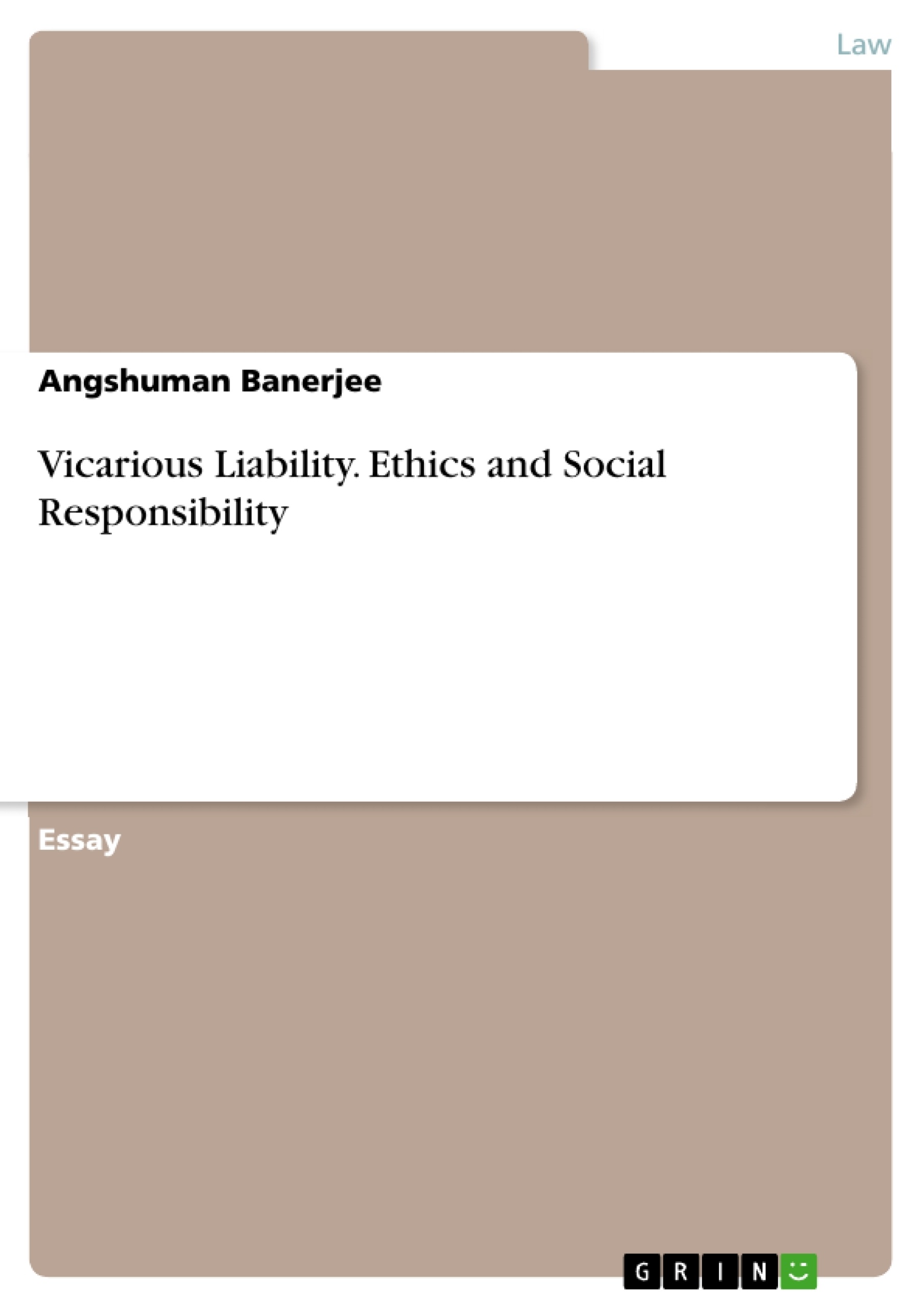Abstract or Introduction
In a world where impulse governs the judgment of human beings, it’s not unusual to enter situations that exhibit mild to severe conflicts of interest, motives, or perspectives. As such, it is of utmost importance to have amicable ways to settle such disputes while minimizing their destructive effects on the individual(s), organization(s), and society. An important aspect of workplace dispute is the concept of vicarious liability. Simply put, it’s a doctrine that holds the employer responsible for the wrong acts of the employee(s).
In other words, one party may be held liable (or responsible) for the unlawful acts of the other. However, as always, legal terms are governed and subjected by cases; depending on the scenario, it’s important to effectively distinguish the extent to which the doctrine could be applied without amendment. Apart from this, the rules of vicarious liability differ from country to country as per the local laws of the nation/state. Moreover, there are a number of situations where it isn’t clearly defined as to who (or which party) is deemed responsible for the wrong action – the doer or the party bound to the former in a legal relationship. Also, there’s this issue of unintentional wrong doings (torts) and intentional wrong doings (criminal acts).
For unintentional wrong doings (torts), the compensation of the victim is prioritized, but in case of a criminal act, the punishment of the responsible parties is sought. In the end, the question comes up as – who is responsible for the actions, and who should be the one to compensate the victim? In light of this poised question, this brief essay will attempt to shed some light on the matter to reduce its complicated nature for the ease of understanding. It will begin with introducing the concept of vicarious liability in some detail, then differentiate between an intentional and unintentional wrong doing, further putting it in the context of employee – employer and contractor – client (muqawala) relationships. Then it will cite some cases to explain the exceptions (if they exist) to the proposed doctrine, and finally it will conclude with the amendments adopted in the local i.e. U.A.E. law and how they can be compared to their American and British counterparts.
- Quote paper
- Angshuman Banerjee (Author), 2015, Vicarious Liability. Ethics and Social Responsibility, Munich, GRIN Verlag, https://www.grin.com/document/319763
Publish now - it's free






















Comments